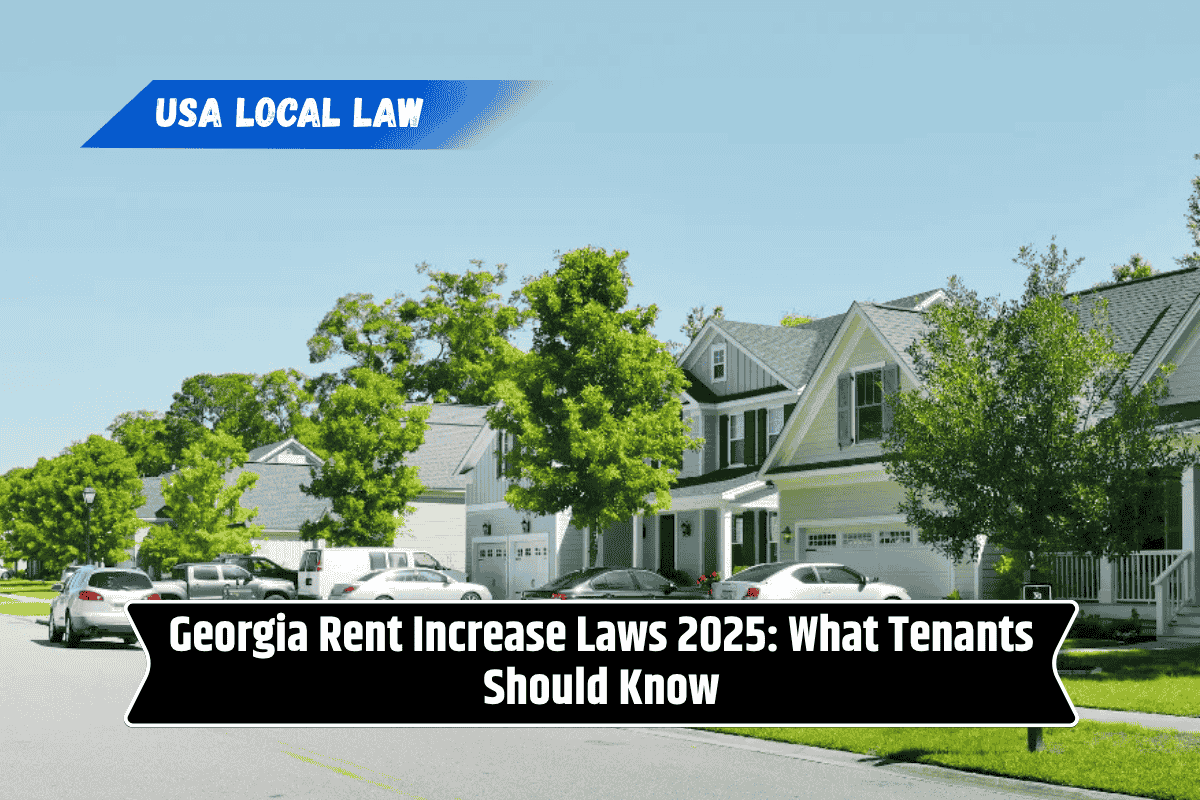Rent prices are a big concern for many people in Georgia, especially with rising living costs across the country. If you’re renting a house or apartment in Georgia in 2025, it’s important to understand your rights as a tenant and what landlords are allowed to do when it comes to raising the rent.
This guide will explain Georgia’s rent increase laws in simple terms, so tenants know what to expect and how to protect themselves.
Is There a Limit to How Much Rent Can Be Increased in Georgia?
As of 2025, Georgia does not have any rent control laws. This means landlords can increase the rent by any amount they choose, as long as they give proper notice and follow the terms of the lease agreement. Unlike states like California or New York, Georgia law does not set a maximum percentage for rent hikes.
This gives landlords more freedom, but tenants need to be careful, especially when renewing or signing a new lease.
When Can a Landlord Increase the Rent?
In Georgia, a landlord can raise the rent:
At the end of a lease term (like at the end of a 12-month lease)
If you are on a month-to-month lease, then rent can be raised with proper notice
Landlords cannot increase rent during an active lease period unless the lease has a special clause that allows it. If your lease doesn’t mention any rent changes during the contract, the landlord must wait until it ends.
How Much Notice Must Be Given?
Georgia law does not require a specific number of days for rent increase notice, but standard practice is:
30 days’ written notice for month-to-month leases
For yearly leases, notice should be given before the lease ends, giving tenants time to decide if they want to renew or move out
To be safe, most landlords and tenants follow a 30- to 60-day rule for rent change communication.
Is There Any Protection Against Sudden High Rent Increases?
Since Georgia does not have rent control, there is no legal protection against very high rent hikes. However, renters may:
Negotiate with the landlord
Choose not to renew the lease and look for affordable options
Report the landlord if the increase is being used unfairly (like discrimination or retaliation)
In cases where tenants feel the rent is being raised unfairly due to race, religion, gender, or complaints made to authorities, this could be a violation of Fair Housing laws.
Are There Any Rent Increase Rules for Subsidized Housing?
Yes, if you live in government-subsidized or Section 8 housing, different rules apply. In these cases, rent increases must follow federal guidelines, and tenants are usually protected from sudden hikes. These increases are also reviewed and approved by housing authorities before they take effect.
How to Handle a Rent Increase in 2025?
If you get a rent increase notice in Georgia, here’s what you can do:
Review your lease agreement carefully to check what it says about rent changes
Talk to your landlord and try to negotiate if the increase is too high
Start looking for other rental options early if you don’t want to accept the new rate
Get everything in writing, including any agreement on new rent or lease renewal
Being informed and having open communication with your landlord can help avoid misunderstandings and conflicts.
Georgia’s rent increase laws in 2025 are simple but leave a lot of power in the hands of landlords. With no rent control in the state, tenants must stay aware of lease terms and act quickly when rent changes are announced.
Always ask for written notices, know your lease rights, and be prepared to negotiate or move if the new rent is too high. While the law gives landlords flexibility, tenants who stay informed can still make smart and confident decisions about where and how they live.
